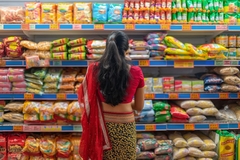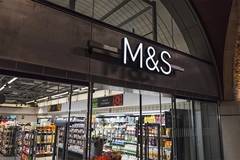
- Industry news
Industry news
- Category news
Category news
- Reports
- Key trends
- Multimedia
- Journal
- Events
- Suppliers
- Home
- Industry news
Industry news
- Category news
Category news
- Reports
- Key trends
- Multimedia
- Events
- Suppliers
Coveris slashes Tesco cheese pack plastic with monolaminate design in recycling boost

15 Dec 2021 --- Coveris is launching a range of lightweight, fully recyclable pouches for Tesco’s grated cheese products in collaboration with Ornua Foods.
Coveris says the launch marks a “major step change” in the cheese packaging, which has moved from a mixed, triple-ply nylon laminate – one of the hardest to recycle materials – to a fully recyclable polyethylene (PE) monolaminate structure with built-in barrier properties.
Mark Robinson, Coveris’ UK flexibles technical sales manager, tells PackagingInsights the company overcame a number of R&D hurdles in achieving the latest design.
“Due to the long-shelf life of the product (up to 90 days), achieving barrier properties to ensure freshness was a key challenge as well as delivering high seal integrity and sealing capability to ensure safety and operational efficiencies required for this type of product.”

“On top of achieving parity with the former non-recyclable pack, we have also delivered around a 15% plastic weight saving per pack to offer further carbon savings,” he says.
Carbon cutting cheese
The new MonoFlexBE format directly replaces current non-recyclable alternatives and maintains packing line efficiencies, says Coveris. The film also delivers a plastic weight reduction of 680 mg of plastic per bag to offer further carbon savings.
Currently available across selected packs of Tesco grated cheese in stores nationwide, a full category launch is set to follow across the retailer’s own-brand grated cheese lines.
Tesco’s grated mozzarella in Coveris’ MonoFlexBE format packaging.Coveris is also removing the current hard-to-recycle plastic and switching to the new monolaminate material is expected to move roughly 411 metric tons of plastic waste into recycling streams annually.
Robinson says Tesco is “at the forefront of recyclable packaging replacement, combining material innovation with dedicated in-store recycling streams.”
“Having recently also launched a first-to-market recyclable stand-up barrier pouch for Tesco ready-to-eat chicken under our MonoFlexBE brand, we expect to grow this offering in other barrier and non-barrier categories with the retailer.”
Lightweighting cheese packs
Given the new packaging’s lightweight properties, the innovation will also deliver a plastic saving of around 32 metric tons, claims Coveris.
Mirroring the functionality of the former non-recyclable packs, the new high-clarity format also features a resealable zip for improved convenience and is fully printed in up to nine colors.
Denise Mathieson, senior packaging manager at Tesco, says the launch is “yet another step closer to realizing our ambition of single polymer packaging, which is much easier to recycle.”
Given the complex product and shelf life requirements of cheese, along with its high-speed packing demands, the collaboration says the project has been “both a technical and sustainable breakthrough” for each company.
The project drew expertise from across the business, including Coveris’ Winsford-based Film Science Lab to develop the film and barrier technology and its Food Science Lab in Lincolnshire to ensure food safety and performance of new materials.
Flexible recycling challenges
Despite innovations reducing plastic usage and creating monomaterial packs for improved recyclability, industry efforts are still hindered by a lack of curbside collection and recycling infrastructure, says Robinson.
This year, Tesco rolled out soft plastic collection points at all of its large UK stores to remedy the issue, expecting to collect around 1,000 metric tons per year.
Similarly, producer compliance scheme Ecosurety and environmental charity Hubbub launched The Flexible Plastic Fund, a UK industry initiative aimed at making flexible plastic recycling economically viable for recyclers and easier for consumers.
The Fund received £1 million (US$1.4 million) in backing from Mars UK, Mondelēz, Nestlé, PepsiCo and Unilever.
Robinson says national curbside collection is imperative to ensure collection and provide feedstock for future recycled films in support of the UK Plastic Packaging Tax, slated to launch in 2022.
By Louis Gore-Langton










